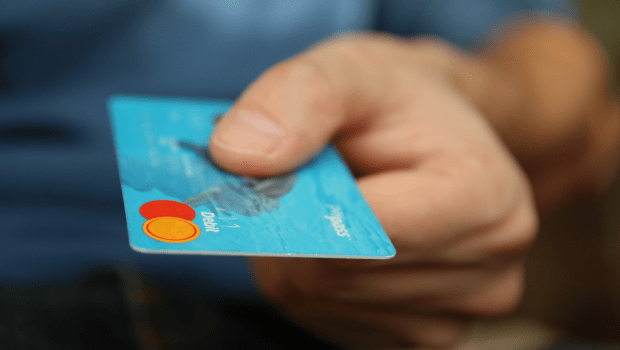-

-
Published on
17/01/2019
by Any Business.Com.Au
Are your payment options helping or hindering your business?
With online payment facilities, AfterPay, crypto currencies and pay wave now the 'norm' it's important to consider what payment methods your business is offering and whether the payment options you currently offer are hindering or progressing your business.
This is an important aspect of ensuring you manage the cash flow of your business effectively. The payment methods you choose will ultimately determine the facilities your business will need - taking into account that fees and charges can accompany some payment methods.
Some examples of payment methods include:
- Credit and debit card payments – a credit card lets customers pay for goods and services by incurring a debt with a credit card provider. Debit cards deduct the amount of money from a sale from a customer's bank account.
- Direct debit payments – becoming a direct debit user requires already having an established business. Direct payments are fast and funds are usually in your account by 9am the next business day. The Australian Payments Clearing Association (APCA) coordinates direct debit payments in Australia. Be aware of fees to process direct debit payments.
- EFTPOS payments – EFTPOS stands for electronic funds transfer at the point of sale. It lets your customers pay directly into your bank account via a bankcard, credit card or debit card.
- Online payments (eg Paypal) – online payments let your customers pay for your goods and services through your website. Payments can be automatic and convenient. Make sure you use encryption for sending payment information to protect your customers from cyber criminals.
- Cash – cash payments are useful for low value items or if other payment methods are unreliable. You will need a method of tracking your sales such as a cash register. You will also need to regularly bank your cash and avoid storing large amounts of cash to reduce the risk of theft.
- Cheque – paying by cheque is becoming less frequent due to the ease of electronic methods above. Cheques require higher levels of handling to process them and can attract fees. They also take about three business days to clear.
- Money order payments – a money order tells a bank, credit union, building society or post office to pay you money. Unlike cheques, money orders are prepaid. Money orders can't bounce due to insufficient funds since they are prepaid, but they can bounce due to other problems, such as suspected fraud.
- Gift cards and vouchers – gift cards and vouchers can increase sales around special occasions such as Christmas and birthdays. They can also help promote your brand while helping to bring in new customers. In some states gift cards or gift vouchers are valid for longer periods and businesses will need to honour the purchase if it's within that period.
- Bitcoin and digital currencies – digital currencies are similar to money. Use them to buy and sell goods and services in exchange markets. However, businesses don't have to accept digital currency as payment as it isn't a legal tender. The value of digital currency can change more quickly than traditional currency. To read more, consider the risks associated with digital currencies.
How to choose a payment method
Each payment method has different advantages and disadvantages. No one type of payment is best. The best payment method depends on the needs of your business.
When choosing payment methods, think about how their advantages and disadvantages affect your customers and your business operations.
For example, cash can be anonymous and reliable, but also expensive to handle and has a higher risk of theft. EFTPOS is quick and has a lower risk of theft, but it requires a fee for the service.
Some of the things you will need to consider when choosing a payment method for your business include:
- Customer preference – choosing a payment method your customers prefer will make them more likely to pay you on time. The most common payment method is through electronic credit and debit cards. For example, there has been a 42% growth in Pay wave and other tap-and-go accounts and 74% of all MasterCard in-store transactions are now contactless.
- Risk – for example, cash has a higher risk of theft since it doesn't go directly into your bank account. There's also more risk of mistakes.
- Privacy – different payment methods are more private. For example, credit cards automatically record transactions. Some customers might prefer to pay cash for certain goods and services, such as medication, for privacy reasons.
- Service fees – for example, EFTPOS and credit card providers often charge service fees.
- Transaction costs – the bank may charge a cost for each transaction.
- Reliance on electrical and telecommunications infrastructure – for example, EFTPOS uses electricity and needs access to a phone network. These payment methods can be unavailable if these systems go down.
Related articles



